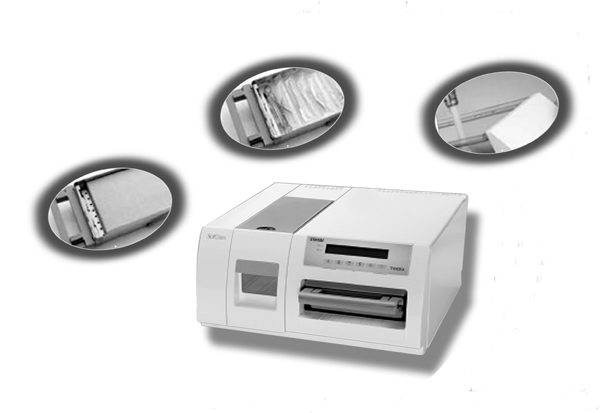Rhein Medical has introduced the new Statum 7000 Autoclave. The autoclave is available with a printer (02-7100), or without (02-7101). Rhein says the benefits include a 12-minute unwrapped cycle time; a 15-minute wrapped cycle time; it operates on simple tap water and sterilizes up to 110 pouched packages; it's easily serviced; and it has a removable water reservoir. Contact Rhein Medical at (813) 885-5050 for more information.

Study Says Intacs May Delay Transplants for Keratoconus Patients
Addition Technology, maker of Intacs corneal implants for the treatment of keratoconus and myopia and the AlphaCor artificial cornea, report that Intacs corneal implants may delay a corneal transplant for keratoconus patients 93 percent of the time, based on a company survey. The company surveyed 76
The survey also asked surgeons the reason for performing a transplant following the removal of Intacs. In less than 1 percent of all cases performed, the patients didn't receive a satisfactory visual effect after Intacs. Surgeons indicated that they didn't envision any difficulties with performing a corneal transplant post Intacs removal.
According to Eye Bank Association of America data, there are approximately 4,700 to 4,800 corneal transplants performed in the
Device Offers a Better Option for Home Monitoring of Dry AMD
ForeseeHome, a device for in-home monitoring of dry age-related macular degeneration, demonstrated 30 percent greater sensitivity than the Amsler grid when used to test patients previously diagnosed with choroidal neovascularization, according to research that will be presented at the upcoming American Society of Retina Specialists meeting. ForeseeHome is a version of the clinic-based Foresee PHP Preferential Hyperacuity Perimeter.
Researchers at
The results of the study found that among the 26 CNV patients, 23 were found to be positive with the ForeseeHome, compared to only 15 patients found positive with the Amsler grid. This data yields a sensitivity of 88.4 percent for the ForeseeHome, versus 57.6 percent for the Amsler grid. Additionally, the ForeseeHome indicated no false positives among the group of 31 intermediate AMD patients.
ForeseeHome will be distributed in the
ReStor Aspheric Launches Abroad
Alcon announced the commercial launch outside the



